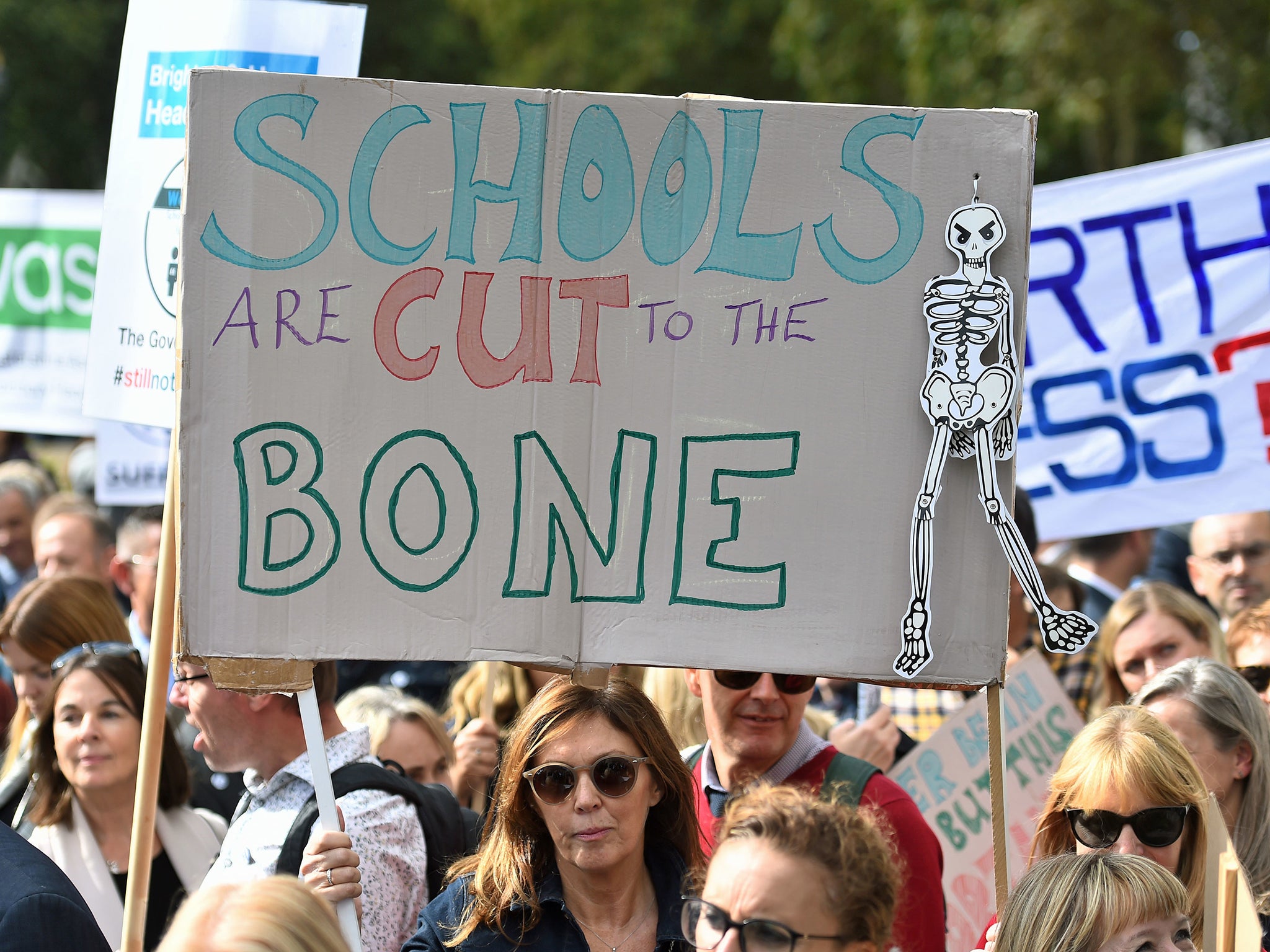‘The crisis is not over’: Teachers hit back at Boris Johnson’s school funding plans
‘The money will not be enough to meet the needs of all pupils,’ unions warn

Your support helps us to tell the story
From reproductive rights to climate change to Big Tech, The Independent is on the ground when the story is developing. Whether it's investigating the financials of Elon Musk's pro-Trump PAC or producing our latest documentary, 'The A Word', which shines a light on the American women fighting for reproductive rights, we know how important it is to parse out the facts from the messaging.
At such a critical moment in US history, we need reporters on the ground. Your donation allows us to keep sending journalists to speak to both sides of the story.
The Independent is trusted by Americans across the entire political spectrum. And unlike many other quality news outlets, we choose not to lock Americans out of our reporting and analysis with paywalls. We believe quality journalism should be available to everyone, paid for by those who can afford it.
Your support makes all the difference.Teachers and unions have warned the “crisis is not over” as they criticised the prime minister’s school funding announcement.
Local authorities will now be required by law to make sure all schools across England receive their minimum funding entitlements from next year, Boris Johnson announced.
It comes after schools were forced to close at lunchtime and parents were asked to pay for essential resources amid funding cuts.
Every secondary school will receive at least £5,000 per pupil next year and every primary school will receive at least £3,750 per pupil as part of the government’s funding package.
But education unions say the money will not be enough to meet the needs of all pupils, adding that the majority of schools in the country will still be worse off next year compared to 2015.
Geoff Barton, general secretary of the Association of School and College Leaders, said: “Despite the promises that the government will reverse the cuts, the fact is that the money allocated to education over the next three years will not achieve this objective.
“The reality is that the financial situation for schools and colleges will continue to be extremely challenging and the funding crisis is not over,” he added.
In August, the prime minister announced the schools budget would be increased by £2.6bn in 2020-21, £4.8bn in 2021-22, and £7.1bn in 2022-23.
Now local authorities will be required by law to make sure every school receives the full minimum level of funding. Previously, local authorities had more powers to allocate the money.
But a previous analysis from the Education Policy Institute (EPI) think tank said schools serving the most disadvantaged children are set to miss out under Mr Johnson’s pledge to “level up” funding.
Mary Bousted, joint general secretary of the National Education Union, said: “The government’s rhetoric is excellent, it is a pity the reality for the vast majority of schools does not match it.
“From the start of the next financial year this coming April, 83 per cent of schools will have lower real terms per pupil funding than they did in 2015.”
Paul Whiteman, general secretary of school leaders’ union NAHT, said: “This is a significant amount of money, but against the backdrop of years and years of cuts. At best this just restores funding levels to where they were before austerity kicked in.
“In other words an unprecedented 13-year funding freeze.
“During that time the demands on schools have only increased. The money will not be enough to meet the needs of all pupils. The government would be wrong to suggest that it is ‘job done’.”
On the announcement, Mr Johnson said: “We’re guaranteeing the minimum level of funding for every pupil in every school so that, with a top class education, our children can go on to become the world’s future innovators, trailblazers and pioneers.”
Gavin Williamson, the education secretary, added: “Putting minimum per pupil funding levels into law for the first time gives schools a cast-iron assurance they will receive the money they need to help every child wherever they live and unlock all of the fantastic opportunities an excellent education provides.”
Judith Blake, chair of the Local Government Association’s (LGA) children and young people board, said: “Continuing to have some flexibility to agree with schools a local funding formula, would allow councils to work with government to produce the best possible outcomes for both schools and pupils and ensure every child gets the best education possible.”
Join our commenting forum
Join thought-provoking conversations, follow other Independent readers and see their replies
Comments